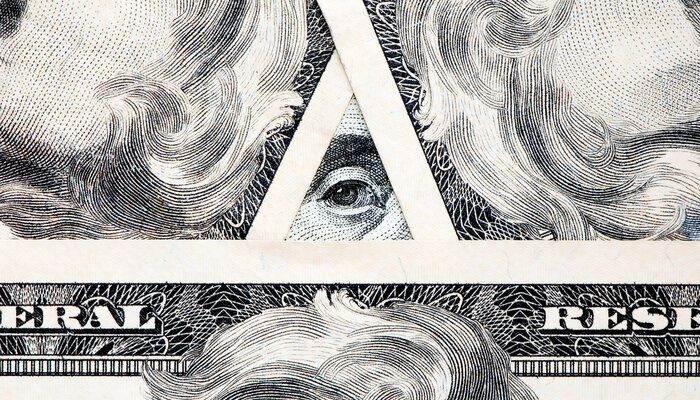You’re reading The Briefing, Michael Waldman’s weekly newsletter. Click here to receive it in your inbox.
Historians (if they still have them in the future) will see the 2024 election as a time when absurdly wealthy individuals thrust themselves into political power.
Elon Musk, the world’s richest person, spent more than $250 million to elect Donald Trump. He was not alone. Venture capitalist David Sacks, casino owner Miriam Adelson, and packaging supplies magnate Richard Uihlein all helped Trump with massive financial support.
Wealthy people have spent big on elections before. (George Soros, meet the Koch brothers.) What was unprecedented this time around was that they effectively paid for, and in at least one case helped run, a presidential campaign that otherwise operated with a skeleton staff.
Far more than most realize, this distorted political world was given to us by the Supreme Court.
Fifteen years ago next Tuesday, the Court, led by Chief Justice John Roberts, issued Citizens United v. FEC. By a 5–4 vote, conservative justices upended a century of campaign finance law. The ruling was hugely controversial. In dissent, Justice John Paul Stevens wrote, “While American democracy is imperfect, few outside the majority of this Court would have thought its flaws included a dearth of corporate money in politics.” Days later, at the State of the Union address, Barack Obama scolded the berobed justices seated in the front row. “Not true,” mouthed Justice Samuel Alito, according to lip-readers.
Now we can see that the ruling’s impact was not less than expected, but more.
Citizens United did not say that corporations are people. Rather, it and other cases that extended its logic said that spending on campaigns could not be limited if it was independent and disclosed. Ultimately, the decision produced a near-complete deregulation of money in federal elections.
Some of the churn in the past 15 years reflected boisterous grassroots energy. Small-dollar fundraising has been a genuinely democratizing force. But the rise in small donors has been overwhelmed by the new role of big donors.
According to my colleagues Marina Pino and Julia Fishman, in an analysis released today, “roughly 44 percent ($481 million) of all the money raised to support Trump came from just 10 individual donors.”
Back in 2010, I was one of those who worried that Citizens United would mean that Exxon and other giant firms would dominate spending. That did not happen. Instead, we got a political system dominated by ultra-wealthy individuals to a degree never before seen in American politics.
What about those caveats and quibbles from the Court? The threadbare fiction that this spending would be “independent” has vanished altogether. Trump outsourced many campaign operations to supposedly independent groups, paid for by Musk — who traveled with and stumped for the candidate.
As for disclosure, more and more of the funds used in American politics are “dark money,” big gifts where the identity of the donor is not disclosed or is hidden behind layers of committees and pseudonyms.
For more than a century, ever since money began to really matter in politics, we’ve understood the grave risks to democracy from untrammeled money in campaigns. It’s not that money buys results: Kamala Harris raised $1.5 billion in three months, after all, though it is unclear whether her need to constantly fundraise affected her unusually lukewarm economic message.
Rather, the principal distortion comes from what the politicians — those who ultimately wield power — think the money does.
Now we may be entering a new era in which money fuses with power. It’s tepid to complain that “big donors” have undue influence in government. The biggest donors now run the campaigns. These are not backroom financiers or oil and gas wildcatters, but major government contractors and, in the case of Musk, the owner of one of the biggest media properties in the world. Shortly after Election Day, Musk even moved into a cottage at the president-elect’s home.
Now he and Trump’s other major donors will be able to shape administration policy in big-ticket areas like tariffs, tax cuts, and procurement. And indeed, the late surge of money from tech moguls has transformed the incoming Trump administration’s governing agenda. Did MAGA voters cast their ballots for the $2 trillion cut in federal spending that is supposedly the product of Musk and Vivek Ramaswamy’s DOGE (Department of Government Efficiency) blue-ribbon commission?
At the turn of the 20th century, Americans grappled with similar issues of wealth and power. When J. P. Morgan faced an antitrust lawsuit, he told the president: “If we have done anything wrong, send your man to my man and they can fix it up.” Theodore Roosevelt had a different approach during another moment of corruption and reform. “Sooner or later,” he told a reporter, “unless there is a readjustment, there will come a riotous, wicked, murderous day of atonement.”
We need to build a new reform agenda to respond to this major change in our politics. Passing federal bills to require full disclosure of big donors, rein in super PACs, and require laws still on the books to actually be enforced is a must, but not enough. Overturning Citizens United and the earlier Buckley v. Valeo case (by constitutional amendment or otherwise). A more robust system of small donor public financing, like the one that recently debuted in New York State. Other creative reforms, of the kind that marked a democratic response to corrupt governance. All are necessary.
And we need to find new language to understand and describe what is actually going on. It is not just the same cash-for-access economy we are used to. It is something bigger, more ominous, more consequential. And it is a world given to us by the Supreme Court.



